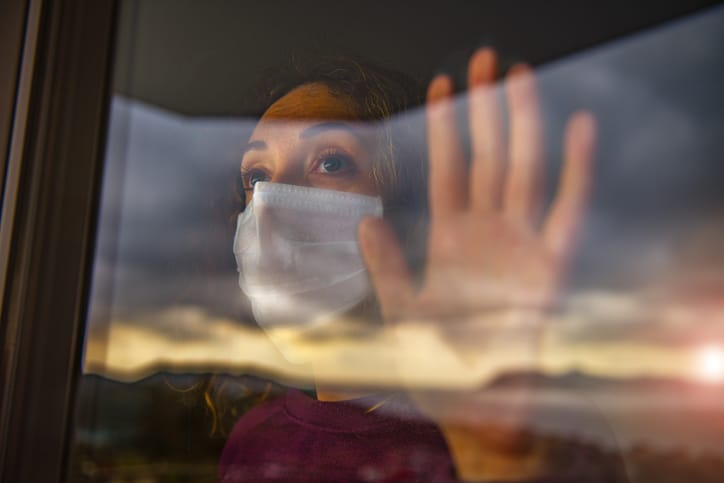Alcoholic liver disease often invokes images of heavy drinking over many years, but even a shorter time frame of overindulgence in alcohol can seriously damage the organ, regardless of age.
Since March 2020, when COVID-19 drove so many of us into quarantine, experts have noticed an increase in cases of alcoholic hepatitis, a severe acute inflammation of the liver caused by drinking.
This acute liver injury was already on the rise, but physicians have seen an exponential increase during the pandemic, says Ashwini Mehta, DO, transplant hepatologist on the medical staff at Methodist Dallas Medical Center.
“What is also notable is we’re seeing a lot of younger patients in their late 20s to 40s who are coming in with severe alcoholic liver disease — oftentimes with evidence of liver failure,” Dr. Mehta says. “Interestingly, most of these patients have never stepped foot into a hospital or even a doctor’s office prior to coming in.”
While alcoholic hepatitis is most commonly diagnosed in people who are 40 to 50 years old, one liver transplantation study found a jump in alcohol-related liver disease among 18- to 34-year-olds after the pandemic started in spring 2020. It is also becoming far more common in women.
“Several studies have shown that women have borne the brunt of many new pressures from pandemic life because of increased responsibilities at home,” Dr. Mehta says. “Unfortunately alcohol has become a coping mechanism. In fact it is even promoted by pop culture: More and more often, we hear the terms ‘Mommy juice,’ ‘rosé all day’ and ‘wine down Wednesdays.’”
Alcoholic liver disease is complex because it isn’t just one thing, she adds: “It’s the physical manifestation of a disease state that has roots in emotional and psychologic distress. The biggest key is early recognition of a problem and addressing the underlying issues that cause it. “
Dr. Mehta explains how liver disease has escalated in the era of COVID-19 and how we can better protect ourselves moving forward.

RAPID ONSET
Alcoholic hepatitis isn’t just a disease of chronic drinking. It’s an acute condition that can develop in less than a year if the habit is taken to the extreme. After all, there’s a reason health officials recommend limiting daily alcohol consumption to one drink for women and two drinks for men.
According to one report, alcoholic hepatitis typically presents after a patient consumes an average of 80 grams of ethanol (a little less than six standard drinks) each day for more than five years. But excessive drinking can cause liver disease in as little as three months.
“It has to do with the quantity of alcohol but also other risk factors like obesity, genetics, and sex,” Dr. Mehta explains.
Women and people who have a family history of liver disease are more susceptible to alcoholic hepatitis. Another big factor: having an existing case of fatty liver disease, in which too much fat is stored in the liver cells.
Dr. Mehta explains that alcoholic hepatitis symptoms can mimic those of cirrhosis, including jaundice, fatigue, dark urine, pain and fluid retention in the abdomen, poor appetite, nausea, and sometimes fever. These are sure signs that you need to seek medical attention.

COVID-19’S IMPACT
Not only is the stress of the pandemic driving people to drink more heavily, it’s also causing them to avoid medical help. Many are afraid to go to the hospital or see their physicians out of fear of contracting COVID-19.
One analysis found that only the sickest patients, those with end-stage disease, were seeking treatments.
But delaying care only makes matters worse. And for people who already have liver disease, getting COVID-19 means a higher risk of severe disease and worse outcomes due to disruptions in their immune system.
“For those who have alcoholic hepatitis and COVID-19, there is an extremely high mortality rate,” Dr. Mehta says.

IT IS REVERSIBLE
The good news is that alcoholic hepatitis may be reversible when caught early enough.
“The mainstay of therapy is nutrition and complete abstinence from alcohol,” says Dr. Mehta, who explains that malnutrition is a major complication of alcoholic liver disease.
Physicians can also offer medications, such as steroids. In extreme cases, patients must seek out a liver transplant as a last resort.
“At Methodist Dallas, we’re one of the few medical centers in the Midwest and the southern United States that has a clinical trial for alcoholic hepatitis,” says Dr. Mehta, the principal investigator of the trial.
But ultimately, the most effective treatment is prevention. This could mean seeking help for alcoholism and recognizing that you have a problem before it’s too late.
“Alcohol addiction is a disease,” Dr. Mehta says. “It’s usually in response to some other psychological issue, such as depression or stress, and as physicians, we have a responsibility to treat it like any other disease.”
Cheerleader gets a new liver and sets a transplant milestone

